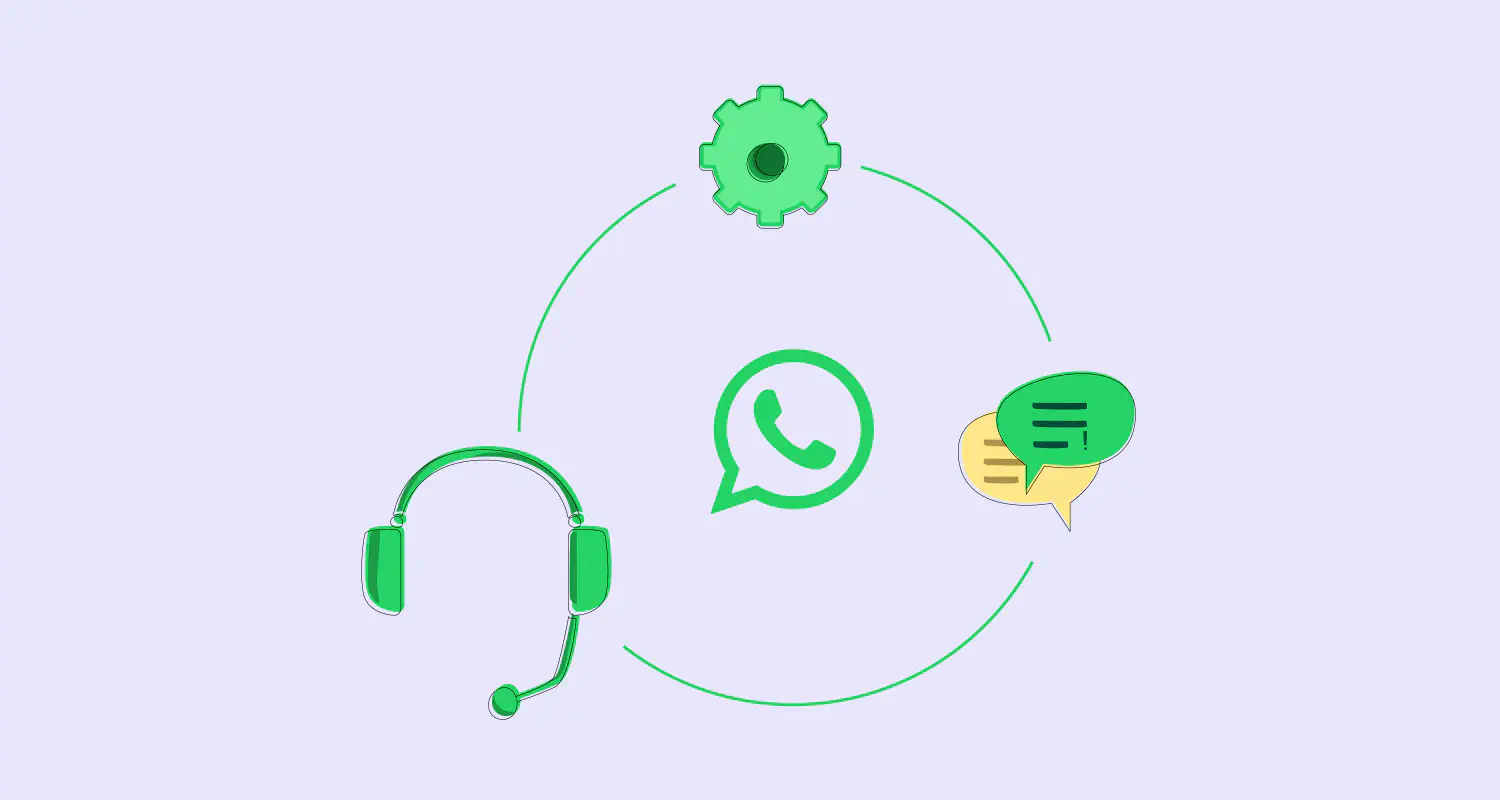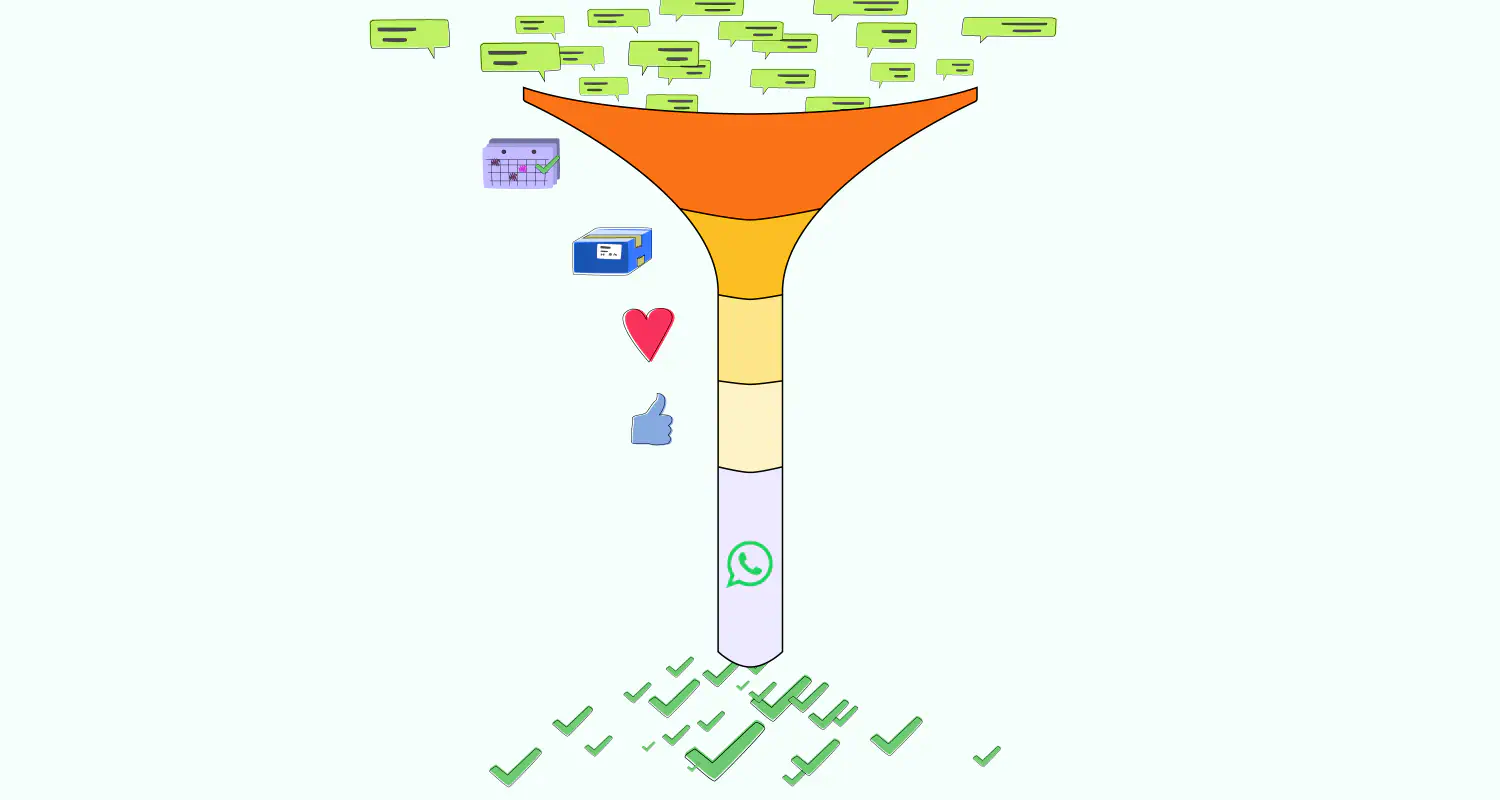The Power of Customer Support Automation With WhatsApp
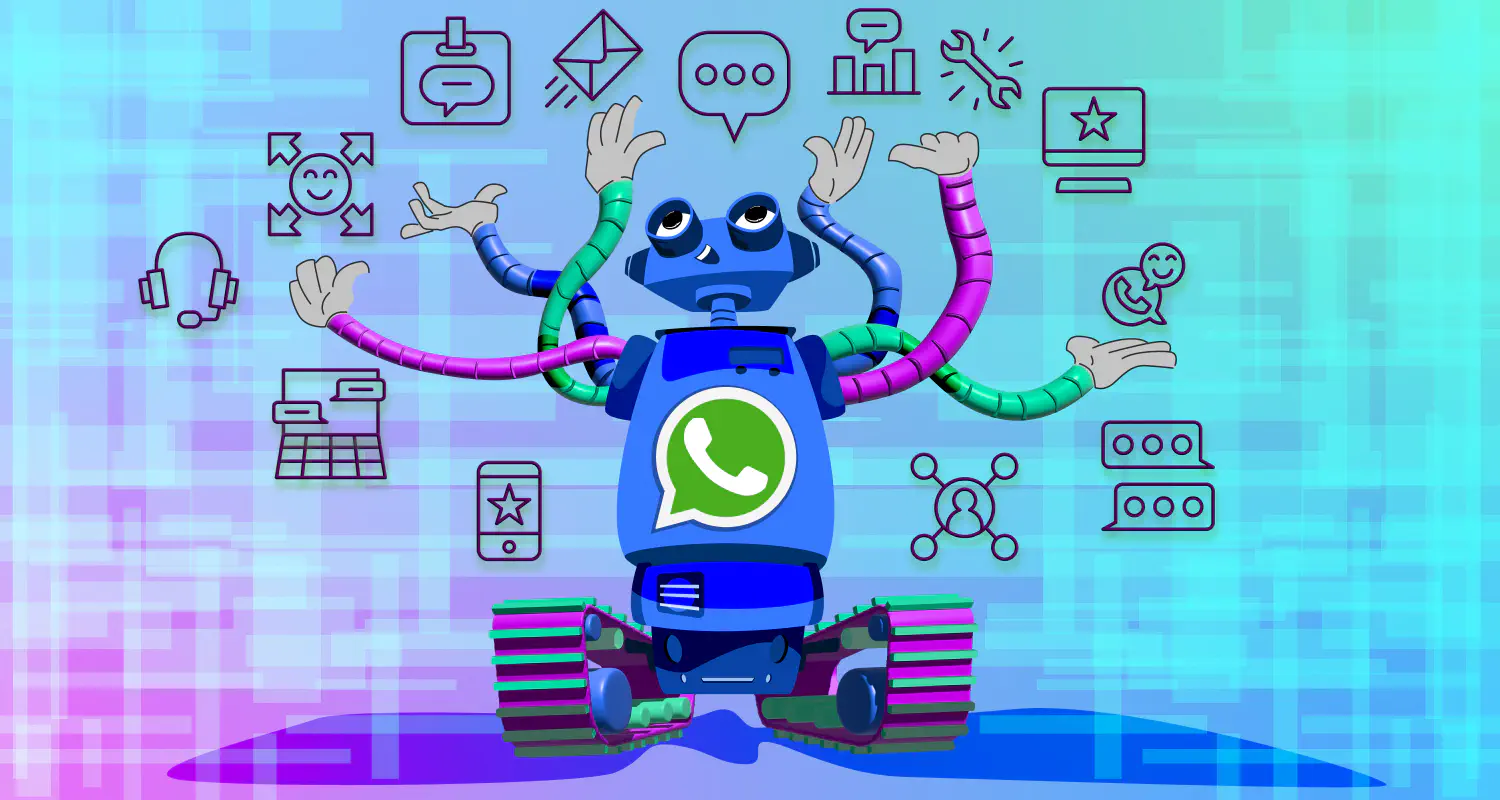
Your customers are waiting. They sent a message on WhatsApp hours ago, but no one has replied. Maybe your support team is swamped. Maybe the same repetitive questions are eating up their time. Either way, the longer the wait, the more frustrated your customers get. Some might never come back.
This is the reality of customer support today. People expect instant responses, and if you can’t deliver, they’ll take their business elsewhere. That’s why WhatsApp is such a powerful tool. It’s where your customers already are, and it makes support fast and convenient. But as your business grows, handling every conversation manually becomes impossible.
Luckily, with WhatsApp, you can automate your customer support without losing the personal touch. Automation helps you respond instantly, handle repetitive questions, and free up your team to focus on complex issues that need a human touch.
In this guide, you’ll learn how to use WhatsApp automation to scale your support, keep customers happy, and make your team more efficient.
Benefits of automating customer support on WhatsApp
Automation in customer support makes life easier for your agents, improves the customer experience, and helps your business scale without increasing costs. And with 73% of consumers willing to switch to a competitor after multiple bad experiences (Zendesk), providing fast and reliable support is more than just a nice-to-have. It can be the difference between growing and closing your business.
Here are the three most impactful benefits of automating customer support on WhatsApp:
Reduced workload and increased efficiency
When you use automation to handle routine questions and repetitive tasks, your support agents have more time to focus on complex issues that require human attention. This reduces burnout, keeps workloads manageable, and allows them to provide more thoughtful and personalized support.
Faster and more reliable support
Customers don’t want to wait hours for a response. With automation, they get instant replies to common questions. Issues are resolved faster because automation can prioritize and route requests to the right agents without delays. It also improves communication by providing proactive updates, like letting customers know when their issue is being worked on.
By reducing repetitive back-and-forth and enabling a more personalized experience, automation improves customer interactions. Plus, 24/7 availability means customers aren’t left waiting just because support hours have ended.
Cost savings and scalability
Handling a growing number of support requests manually isn’t sustainable. Automation helps you scale your support without constantly hiring more agents. This means you can reduce operational costs in the long run. But scalability also opens up new opportunities for growth.
With automated support in place, you can expand your product portfolio without overwhelming the team. On top of that, you can introduce new features, serve different customer segments, or even enter new markets without worrying about increasing support strain or dropping service quality. Customers receive the same level of support every time, thanks to standardized workflows.
Moreover, automation provides you with valuable insights through real-time analytics. Every interaction with customers is automatically logged into the CRM. This helps you improve your support processes and increase customer satisfaction.
WhatsApp Business App automation for small support teams
The WhatsApp Business App is free and designed for businesses that need a simple way to handle customer inquiries. It’s ideal for teams managing a low to moderate volume of support requests without the need for advanced automation or integrations.
If your business is just starting with WhatsApp for customer service, this app provides a solid foundation with a few essential automation features.
Basic customer support automation features
While not as advanced as the WhatsApp Business Platform, the app includes a few automation tools to help small teams respond faster:
- Quick Replies allow businesses to save and reuse responses for frequently asked questions.
- Away Messages automatically inform customers when no one is available.
- Greeting Messages send a welcome message to customers when they first reach out.
Why it’s limited for scaling customer support
Although these features help small teams manage their workload, the WhatsApp Business App has significant limitations when it comes to scaling. It lacks AI chatbots, so all responses beyond quick replies need manual handling.
There’s no intelligent ticket routing, which makes it difficult to distribute inquiries efficiently across a growing team. Integration with CRM or helpdesk tools is also limited, so agents have to juggle multiple platforms to track conversations.
As customer inquiries increase, these constraints lead to bottlenecks, making it harder to maintain fast and consistent support.
Coexistence lets you connect your WhatsApp Business App to the Cloud API.
How WhatsApp Business API offers more automation opportunities
The WhatsApp Business API takes customer support automation beyond the basics. It introduces automation with chatbots, automated workflows, CRM integration, and much more.
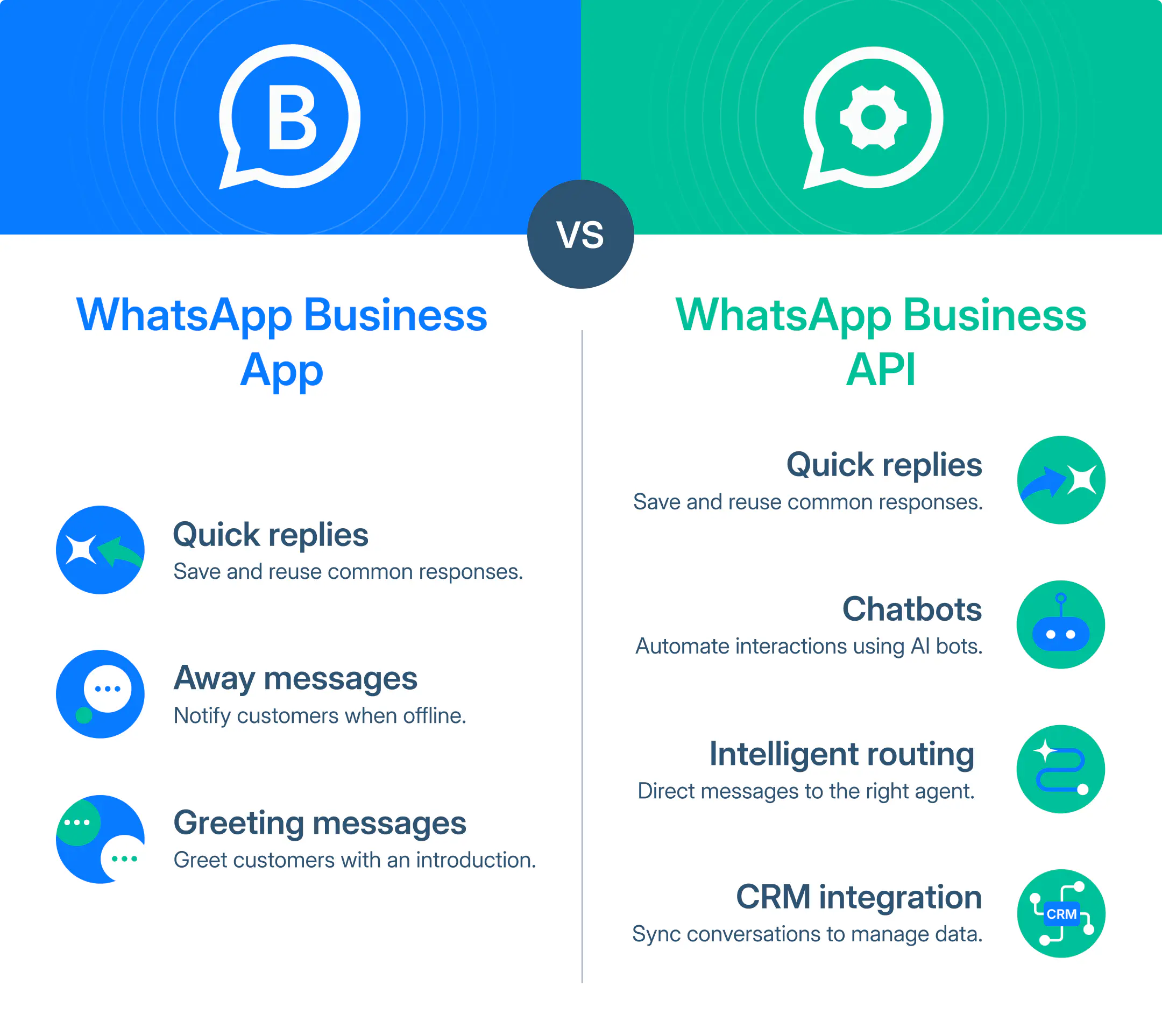
If you want to learn more about the differences between the two solutions, read our recent article WhatsApp Business App vs WhatsApp Business API.
Automate customer satisfaction surveys (CSAT surveys)
Gathering customer feedback is critical for improving support quality. You can set up a chatbot that sends a WhatsApp flow when key events occur, such as when a ticket is resolved or when a CRM status changes. This simplifies gathering feedback and increases response rates.
Over time, these insights help you identify bottlenecks and improve customer experience without requiring manual follow-ups.
Support CS reps with AI agents
Instead of searching manually for information, agents can ask the AI chatbot simple questions, and it will fetch the necessary details, summarize customer histories, or even generate responses.
Furthermore, the chatbot can handle the entire interaction with the customer and only connect them with a CS rep if they reach a point where human intervention is necessary. This reduces the time your team spends on repetitive work and helps them focus on complex cases. The result? Less fatigue and happier customers.
Intelligent ticket assignment and load balancing
If support tickets are assigned manually, it slows down response times and creates an uneven workload for agents. With the WhatsApp Business API, you can set up assignment rules in your team inbox so that conversations are assigned based on agent availability, expertise, or other criteria.
Here’s an example of how you can create an inbox rule in Rasayel.
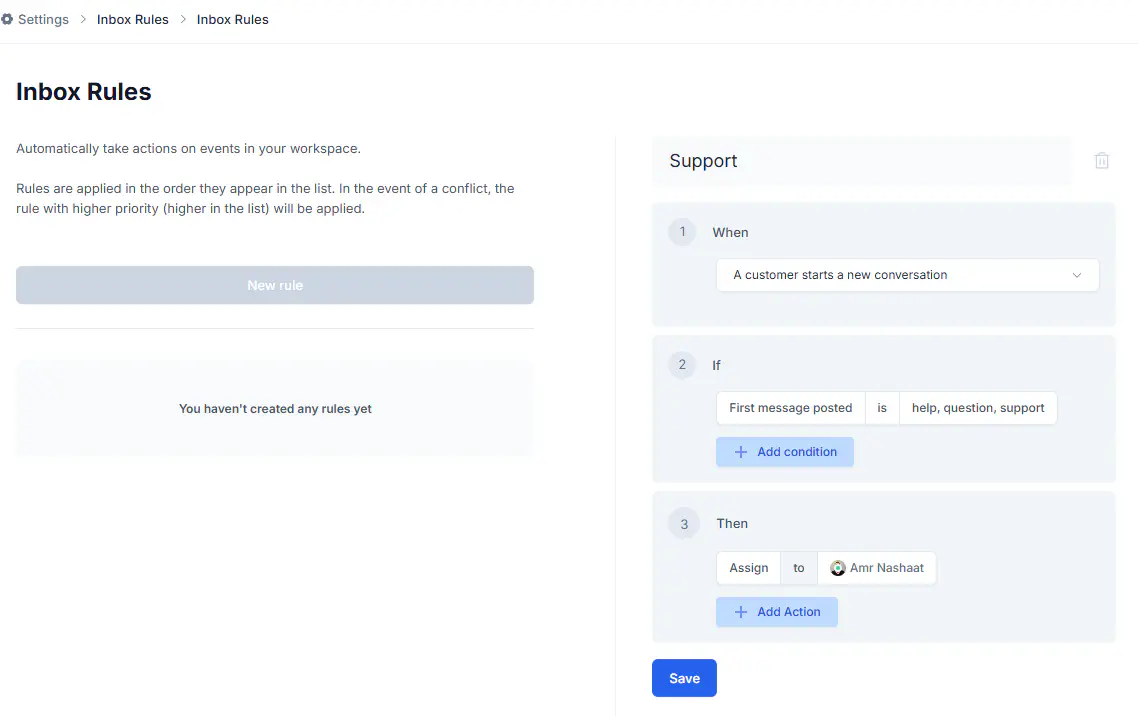
Advanced chatbot flows for faster resolutions
Chatbots do more than just send canned responses. With the WhatsApp API, you can create advanced chatbot flows. For example, bots can qualify leads by distinguishing between existing customers and potential buyers.
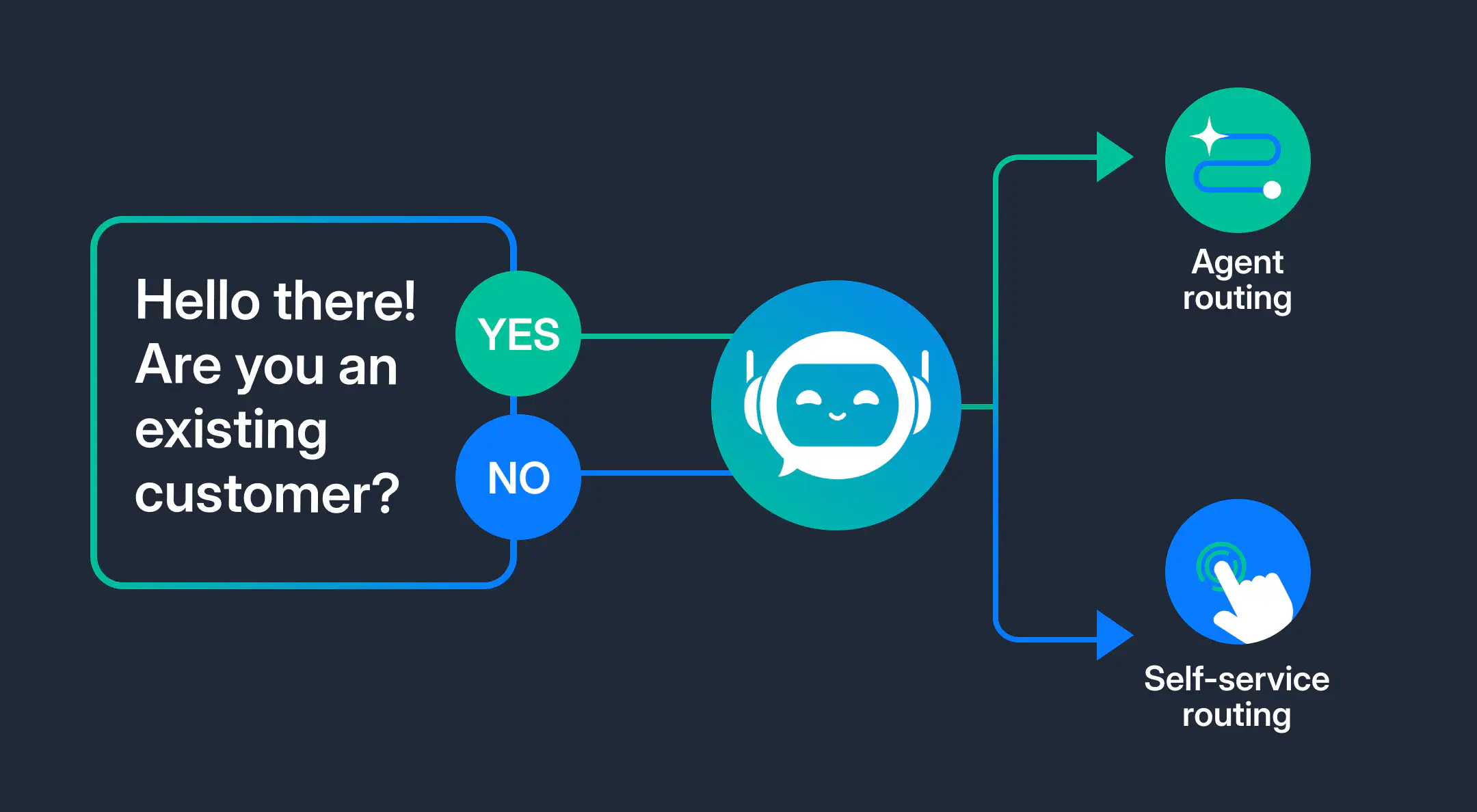
The bot can also direct customers to AI self-service options to reduce agent workload. Custom chatbot flows based on customer tags also help by skipping irrelevant questions.
CRM and contact syncing for a unified customer view
A major advantage of the WhatsApp Business API is its ability to sync with CRM systems like HubSpot automatically. Instead of manually entering data, the system adds WhatsApp contacts to the CRM in real time. When a customer interacts with support, it instantly creates a new CRM entry, ensuring no interaction is lost.
Conclusion
Businesses that rely on WhatsApp for customer service can’t afford to leave customers waiting or overburden their support teams with repetitive tasks.
With the WhatsApp Business API, automation goes beyond basic quick replies and away messages. AI chatbots can help you work more efficiently and intelligent routing ensures conversations reach the right person instantly. Automated CSAT surveys and CRM integrations also provide valuable insights and a smooth customer experience.
Investing in WhatsApp automation means faster support, happier customers, and a more productive team. If you’re ready to scale your support operations, it’s time to explore automation solutions and integrate WhatsApp Business API into your workflow.
Build a customer support system that grows with your business.
Book a demo with our team and we’ll help you set up WhatsApp automation that fits your needs.

Sarah is a B2B SaaS strategist and thought leader with years of experience in sales and market research. With a deep understanding of the WhatsApp Business API and its role in modern B2B communication, she writes insightful, opinionated pieces tailored for decision-makers in the SaaS industry. Drawing from her firsthand experience, Sarah is addressing sales team pain points and leveraging AI to streamline sales processes.

